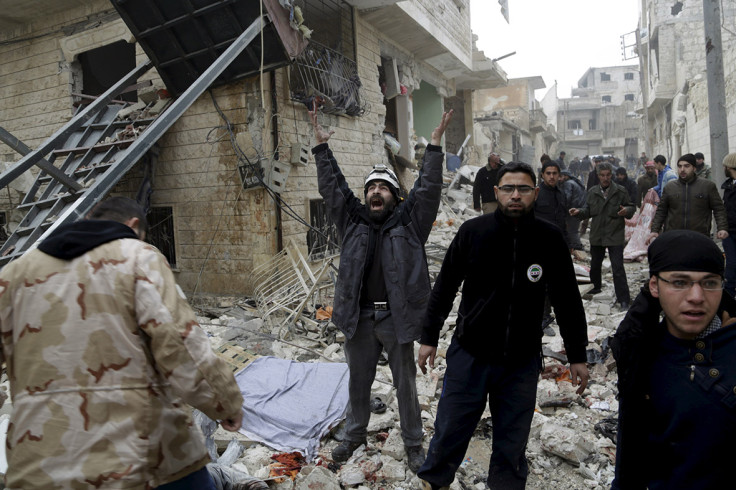War on Isis: Increase in Russian air strikes helps Daesh says US colonel

The US-led coalition against Islamic State has warned that Russian aggression is assisting Isis (Daesh). Western governments are accusing Moscow of increasing its air attacks to aid Syrian president Bashar al-Assad, a long-time ally of Putin. The Kremlin has declared that it is using its air sorties to destroy all "terrorist groups". But critics say Russia has attacked moderate groups more than IS.
Colonel Steve Warren, military spokesman for the Global Coalition against Islamic State claims that Russia is helping the people it claims to be destroying. "They're using this Russian aggression, Russian air strikes against opposition forces as their opportunity to begin manoeuvring," he told Sky News.
"Some of the strikes that the Russians have conducted have benefited ISIL. There's just no question about that."
The US spokesman's views also concur with UK foreign secretary Philip Hammond, who said earlier this month: "The Russians say let's talk, and then they talk and they talk and they talk. The problem with the Russians is while they are talking they are bombing, and they are supporting Assad."
US-Russia brokered truce
The comments were made despite the US and Russia announcing a planned cessation of hostilities in Syria designated for midnight on 27 February. The White House said that President Barack Obama had phoned the Russian president at Vladimir Putin's request to discuss establishing the cessation of hostilities. After their phone call, the joint Russian-US statement was released.
The truce applied to "those parties to the Syrian conflict that have indicated their commitment to and acceptance of its terms", the statement said. This excluded IS, Nusra and "other terrorist organisations designated by the UN".
Air strikes by Syria, Russia and the US-led coalition against these groups would continue, the statement read. Russian and Syrian planes would halt any attacks on the armed opposition groups.
Analysts say there will be scepticism about the possibility of an effective ceasefire, given the continued fighting and failure of the first deadline. A first round of indirect talks collapsed in January after the government launched a massive offensive backed by Russian air strikes in the northern province of Aleppo, near the Turkish border.
Syrian official Omar Osso said he was "not optimistic that clashes will stop because we are dealing with criminals who have hundreds of state sponsors", according to the New Arab.
The Syrian Observatory for Human Rights claims that more than 1,000 civilians have been killed in air strikes since Russia's intervention began in September.
The UK-based Syrian Observatory for Human Rights monitoring group said fighting and air strikes continued unabated on Monday 22 February, with IS fighters attacking the army's main supply route between Damascus and Aleppo.
© Copyright IBTimes 2025. All rights reserved.




















